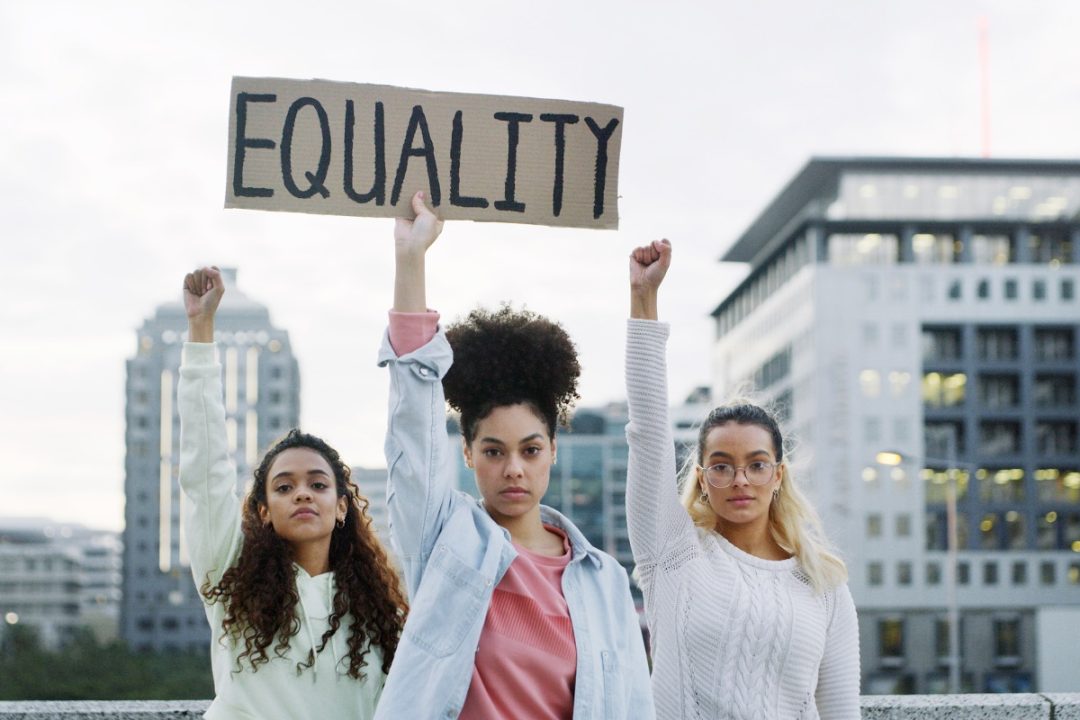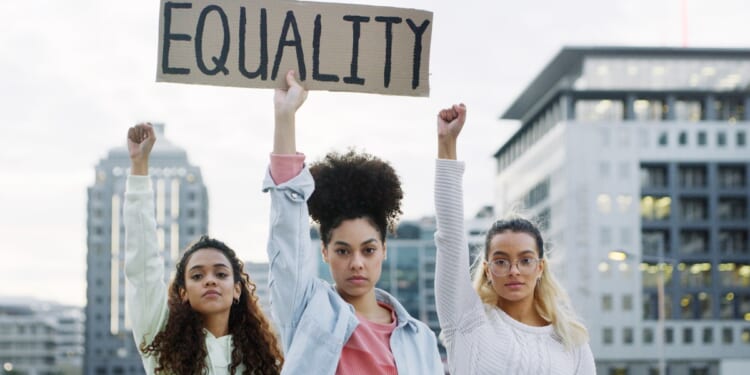
“Equality is unfair!” proclaimed TV curmudgeon Archie Bunker in a 1974 All in the Family episode. “What’s the point of a man working hard all of his life trying to get someplace,” he bellowed, gesticulating wildly, “if all he’s going to do is wind up equal?!”
It was a hilarious scene and line and, as always, Archie’s argumentation left something to be desired. Ironically, though, his understanding of equality still might’ve surpassed that of our radical egalitarians.
After all, the latter act as if “equality,” per se, is a somehow meaningful measure. But imagine this:
You bring your child to a doctor for a check-up. Upon its conclusion you ask, “How is he?”
“Oh, good news,” replies the physician. “Your boy’s health is equal to that of all the other kids I treated today.”
Would you be reassured by this answer? I mean, the doc might’ve spent that morning working in a pediatric cancer ward.
Seem ridiculous? Well, consider that so much commentary today presupposes that achieving a state of outcome equality would somehow be beneficial.
We hear alerts, for example, about women earning less than men, income inequality’s increase, or whites out-earning blacks. (Left unmentioned is that Asian-descent Americans out-earn whites.) Implicit in all these cases and others is that eliminating these disparities would improve the world. But is there any evidence for this? Or is it just an article of faith, blindly accepted owing to use not of reason, but of repetition?
Unnatural
Regarding this, commentator Kris Larsen wrote on Monday that “inequality of outcome is the natural human condition. It cannot be eradicated by social engineers, as much as they may wish otherwise.”
“After all, each individual differs from everyone else,” Larsen continued. “Not everyone has the same talents, aptitudes, level of intelligence, work ethic, creativity, physical strength, etc.”
I actually met a man years ago who, reflecting a strain of modernist thought, disputed this. He expressed the belief that all was a matter of conditioning. But could just anyone break 50 on nine holes of golf as a toddler, as Tiger Woods did? Could everyone play chess as a preteen as did Abhimanyu Mishra, who at age 12 became the sport’s youngest ever grandmaster? Apparently, the all-humans-are-carbon-copies theorists think so.
This is ironic since the same people also generally believe man is a cosmic accident — “just another animal.” This is relevant because inequality is nature’s norm. For example, some species are more dominant in the same environment, or survive more readily in a given one. Within the same species, some members are larger, hardier, stronger, or faster. Moreover, hierarchies reign. Examples: One lion rules the pride and one silverback gorilla the troop — and chickens really do have a pecking order.
Is man this rule’s one exception?
Choice Matters
Even if we were all equal in capacities, however, equality of outcome still would not result. Larsen explains why, writing that some people
will be more successful and/or enjoy a higher economic status because of career, trade, or job choice. [Emphasis added.] Indeed, it was way back in the antediluvian era that my Sociology of Education professor informed me and my fellow classmates that choosing the teaching profession means forfeiting the opportunity to attain upper middle-class status. That is all well and good. We made that choice, and the market rewards doctors and engineers, plus many lawyers, high-tech types, and trades people more favorably.
This applies to groups, too, as illustrated by an example columnist Carrie Lukas presented in 2007. She pointed out that she, and millions of women like her, were the cause of the male-female wage gap. Short version: Women are more likely than men to choose lower-paying careers and prioritize job flexibility and satisfaction over money.
The equality dogmatists have an answer for this, however. The sexes only make different choices, they aver, because of conditioning and patriarchal suppression of female ambition. But this claim is debunked by research such as that presented in the documentary The Gender Equality Paradox.
Short version: Boys and girls exhibit different interests from the very first moment they’re born.
(Will we next hear that the patriarchy has an intrauterine effect?)
Unfortunately, facts too often get trumped by feelings. As to this, much destructive social engineering has been based on the equality supposition. That is, how are the world’s manifold group-performance disparities explainable if all people are equal in capacity? Well, if all these “equal” people and groups aren’t performing equally, it just must be due to discrimination. This justifies government intervention to “remedy” this discrimination. Ergo, DEI — diversity, equity, and inclusion.
It’s Irrelevant
The reality is that, as illustrated via the earlier doctor-examination example, equality is an irrelevant measure. An analogy I use further illustrates this point.
Imagine two tennis centers are training children. After a given period, all the kids at the first are advanced beginners. At the second, some are also advanced beginners. But many others are intermediates or advanced players, and a few are even approaching tournament caliber. Which center exhibits more equality?
Now, at which are the kids faring far better on average?
In truth, there can be equality in ineptitude, misery, poverty, illness, privation, or stupidity. Equality tells you nothing about quality.
And because equality is unrealistic and unworkable, its ardent advocates are generally hypocritical. Just consider a 2020-election campaign commercial featuring Kamala Harris, in which she touted the institutionalized discrimination euphemized as “equity.” Showing two men, one black and one white, together on a mountaintop, she explained in conclusion, “Equitable treatment means we all end up at the same place” (equal outcome).
But did Harris really want to “end up at the same place” with the rest of us?
No, she wanted to be America’s president, alone on the highest mountaintop and the world’s most powerful figure!
If Harris really believed her rhetoric, she’d have advocated eliminating the presidency and all other hierarchical positions. Of course, that’s not realistic — because equality isn’t.
The truth is that there’s beauty in our world’s norm: inequality. We may marvel at others’ gifts in athletics, the arts, and sciences partially because they’re not universally distributed. This is a reason why we’re all reliant on each other, too, why “No man is an island.” We all, as individuals and groups, bring different characteristic gifts to the table.
And if there is any kind of diversity we should love and cherish, that’s it.











